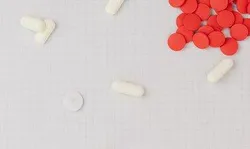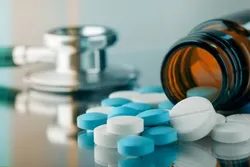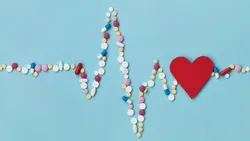
Technology for Continuous Production of Medicines 
Continuous manufacturing is a process that allows for the continuous production of medicines. It increases productivity and flexibility for companies, as well as providing advantages such as improved quality control and reduced costs. Technologies such as automation and robotics are used to control the process, and ensure that the medicines produced are of the highest quality. Continuous manufacturing is becoming increasingly popular in the pharmaceutical industry. ▼
ADVERTISEMENT
Course Feature
![]() Cost:
Cost:
Free
![]() Provider:
Provider:
Edx
![]() Certificate:
Certificate:
Paid Certification
![]() Language:
Language:
English
![]() Start Date:
Start Date:
Self paced
Course Overview
❗The content presented here is sourced directly from Edx platform. For comprehensive course details, including enrollment information, simply click on the 'Go to class' link on our website.
Updated in [March 06th, 2023]
This course provides an overview of the technology used for continuous production of medicines. It covers topics such as the advantages of continuous manufacturing, the equipment used to produce medicines, advanced quality control strategies, and Process Analytical Technology (PAT) and Real Time Release Testing (RTRT). Participants will gain an understanding of the basic principles of continuous manufacturing, the associated technology, and process development and process control for such processes.
[Applications]
After taking this course, participants will be able to apply the knowledge gained to develop and control continuous manufacturing processes for solid dosage forms. They will be able to understand the advantages of continuous manufacturing and the associated technologies, such as Process Analytical Technology (PAT) and Real Time Release Testing (RTRT). Participants will also be able to identify the benefits of continuous manufacturing, such as improved productivity and flexibility.
[Career Paths]
1. Pharmaceutical Manufacturing Engineer: Pharmaceutical Manufacturing Engineers are responsible for designing, developing, and maintaining the production processes of pharmaceutical products. They must ensure that the production process is efficient, cost-effective, and compliant with safety and quality standards. They must also be knowledgeable in the latest technologies and trends in the industry, such as continuous manufacturing, Process Analytical Technology (PAT), and Real Time Release Testing (RTRT).
2. Quality Control Manager: Quality Control Managers are responsible for ensuring that the quality of pharmaceutical products meets the standards set by the company and regulatory bodies. They must be knowledgeable in the latest technologies and trends in the industry, such as continuous manufacturing, Process Analytical Technology (PAT), and Real Time Release Testing (RTRT). They must also be able to develop and implement quality control systems and processes to ensure that the products meet the required standards.
3. Process Development Scientist: Process Development Scientists are responsible for developing and optimizing the production processes of pharmaceutical products. They must be knowledgeable in the latest technologies and trends in the industry, such as continuous manufacturing, Process Analytical Technology (PAT), and Real Time Release Testing (RTRT). They must also be able to develop and implement process control systems and processes to ensure that the products meet the required standards.
4. Regulatory Affairs Specialist: Regulatory Affairs Specialists are responsible for ensuring that the production processes of pharmaceutical products comply with the regulations set by the regulatory bodies. They must be knowledgeable in the latest technologies and trends in the industry, such as continuous manufacturing, Process Analytical Technology (PAT), and Real Time Release Testing (RTRT). They must also be able to develop and implement regulatory compliance systems and processes to ensure that the products meet the required standards.
[Education Paths]
1. Bachelor's Degree in Pharmaceutical Manufacturing: This degree program focuses on the production of medicines and other pharmaceutical products. It covers topics such as drug formulation, manufacturing processes, quality control, and regulatory compliance. Students will learn about the latest technologies and trends in the industry, such as continuous manufacturing, process analytical technology (PAT), and real-time release testing (RTRT).
2. Master's Degree in Pharmaceutical Engineering: This degree program focuses on the design and development of pharmaceutical products and processes. It covers topics such as drug formulation, process design, process optimization, and quality control. Students will learn about the latest technologies and trends in the industry, such as continuous manufacturing, process analytical technology (PAT), and real-time release testing (RTRT).
3. Doctoral Degree in Pharmaceutical Manufacturing: This degree program focuses on the research and development of pharmaceutical products and processes. It covers topics such as drug formulation, process design, process optimization, and quality control. Students will learn about the latest technologies and trends in the industry, such as continuous manufacturing, process analytical technology (PAT), and real-time release testing (RTRT).
4. Certificate in Pharmaceutical Manufacturing: This certificate program focuses on the production of medicines and other pharmaceutical products. It covers topics such as drug formulation, manufacturing processes, quality control, and regulatory compliance. Students will learn about the latest technologies and trends in the industry, such as continuous manufacturing, process analytical technology (PAT), and real-time release testing (RTRT).
Course Provider

Provider Edx's Stats at AZClass
Discussion and Reviews
0.0 (Based on 0 reviews)
Explore Similar Online Courses

Specialization in Java: Part I - For Beginners

Copywriting for Beginners and Pros Free Course With Exercises

Python for Informatics: Exploring Information

Social Network Analysis

Introduction to Systematic Review and Meta-Analysis

The Analytics Edge

DCO042 - Python For Informatics

Causal Diagrams: Draw Your Assumptions Before Your Conclusions

Whole genome sequencing of bacterial genomes - tools and applications

Birth of a drug

Pharmacology

Pharmacology & Cardiovascular Health
 Related Categories
Related Categories
 Popular Providers
Popular Providers
Quiz
 Submitted Sucessfully
Submitted Sucessfully
1. What is the main focus of this course?
2. What are the advantages of continuous manufacturing?
3. What is Process Analytical Technology (PAT)?
4. Real Time Release Testing (RTRT) is a concept of _________.
Correct Answer: Process Analytical Technology (PAT)


Start your review of Technology for Continuous Production of Medicines